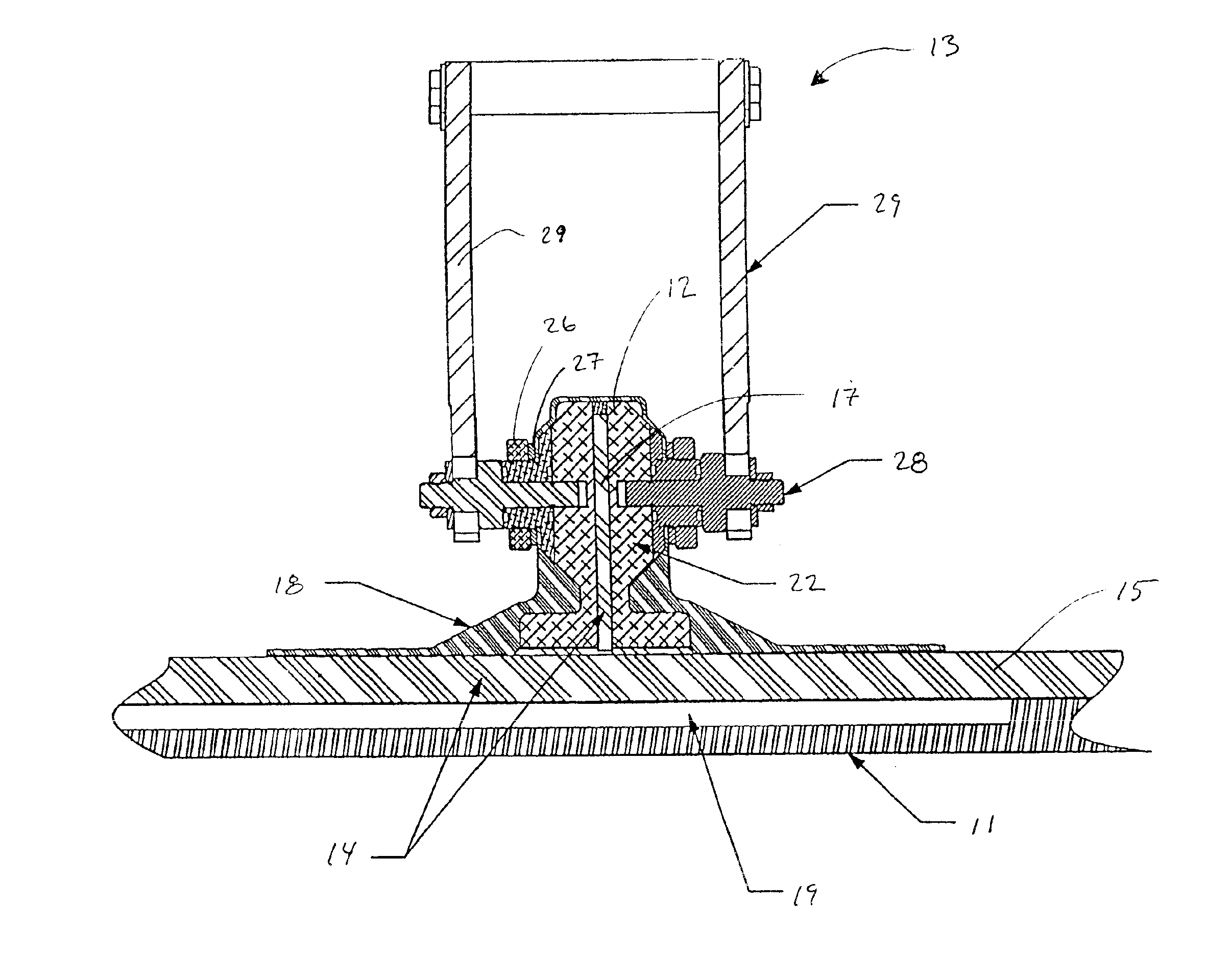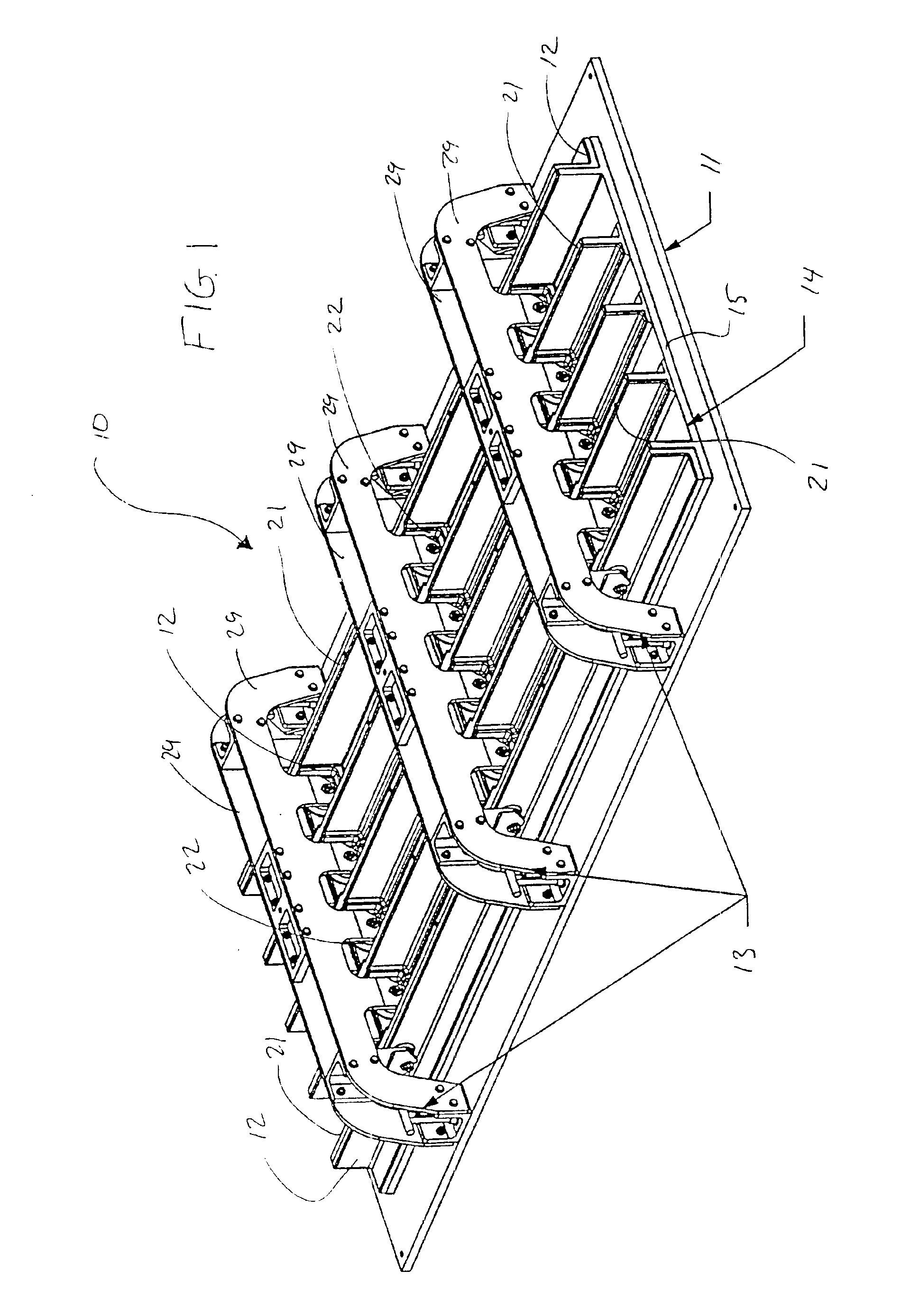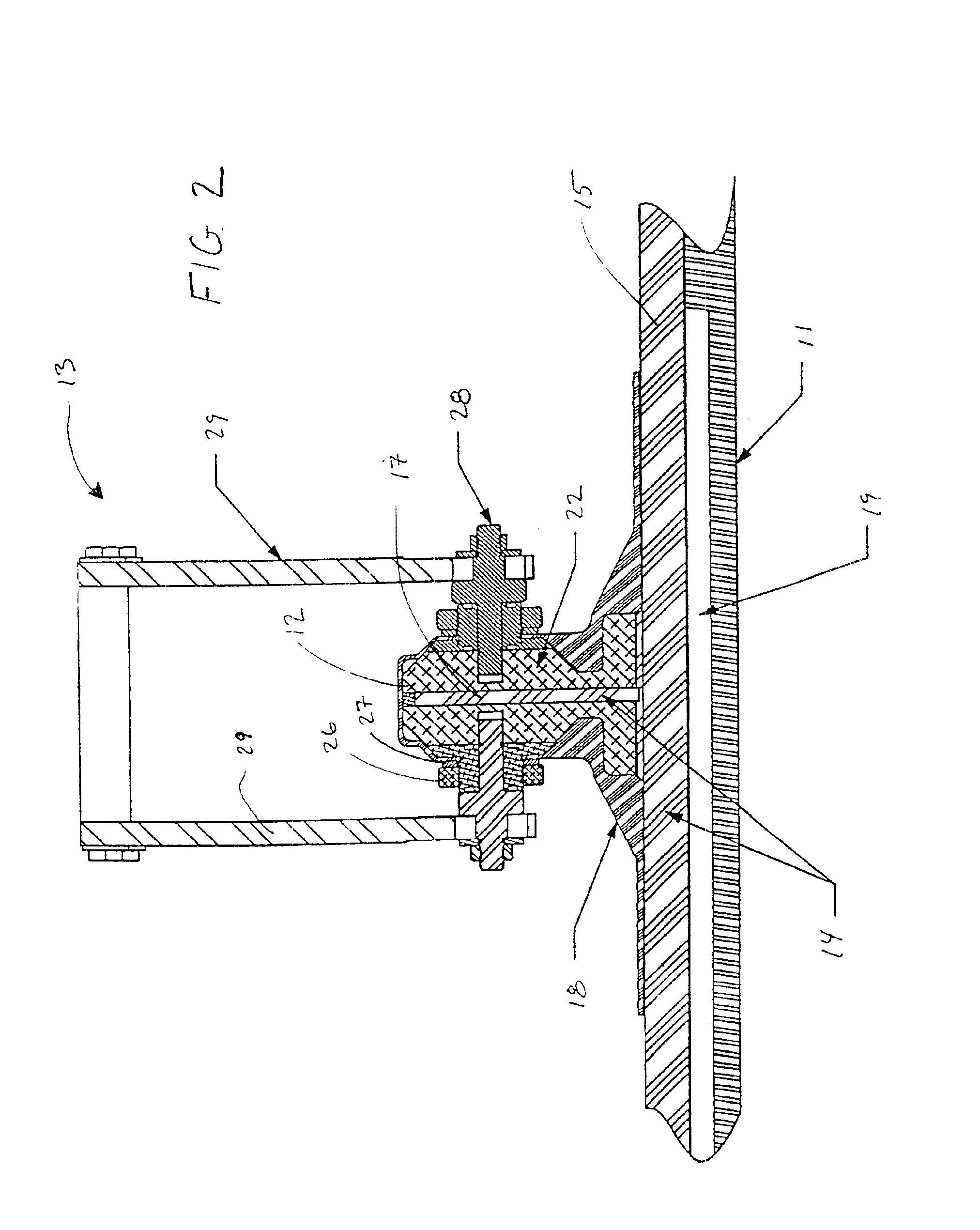Resin infusion mold tool system and vacuum assisted resin transfer molding with subsequent pressure bleed
a technology of resin infusion mold and vacuum assisted resin, which is applied in the direction of dough shaping, manufacturing tools, applications, etc., can solve the problems of affecting the dimensional tolerance of the resulting composite structure, affecting the and many vartm structures, however, fail to meet the more stringent structural criteria required for primary structures. , to achieve the effect of significant cost and labor savings and high fiber volume fraction
- Summary
- Abstract
- Description
- Claims
- Application Information
AI Technical Summary
Benefits of technology
Problems solved by technology
Method used
Image
Examples
Embodiment Construction
The present invention now will be described more fully hereinafter with reference to the accompanying drawings, in which preferred embodiments of the invention are shown. This invention may, however, be embodied in many different forms and should not be construed as limited to the embodiments set forth herein; rather, these embodiments are provided so that this disclosure will be thorough and complete, and will fully convey the scope of the invention to those skilled in the art. Like numbers refer to like elements throughout.
The present invention allows for the construction of large fiber composite structures with inner mold lines having tight tolerances and intricate detailing by using hard tooling. In addition, the present invention uses a post bleed step in an autoclave to increase the fiber volume of the completed composite structure, lending the structure sufficient strength for use in the primary structures of aircraft, marine applications and the like.
FIG. 1 depicts a perspec...
PUM
| Property | Measurement | Unit |
|---|---|---|
| pressures | aaaaa | aaaaa |
| length | aaaaa | aaaaa |
| volume fraction | aaaaa | aaaaa |
Abstract
Description
Claims
Application Information
 Login to View More
Login to View More - R&D
- Intellectual Property
- Life Sciences
- Materials
- Tech Scout
- Unparalleled Data Quality
- Higher Quality Content
- 60% Fewer Hallucinations
Browse by: Latest US Patents, China's latest patents, Technical Efficacy Thesaurus, Application Domain, Technology Topic, Popular Technical Reports.
© 2025 PatSnap. All rights reserved.Legal|Privacy policy|Modern Slavery Act Transparency Statement|Sitemap|About US| Contact US: help@patsnap.com



